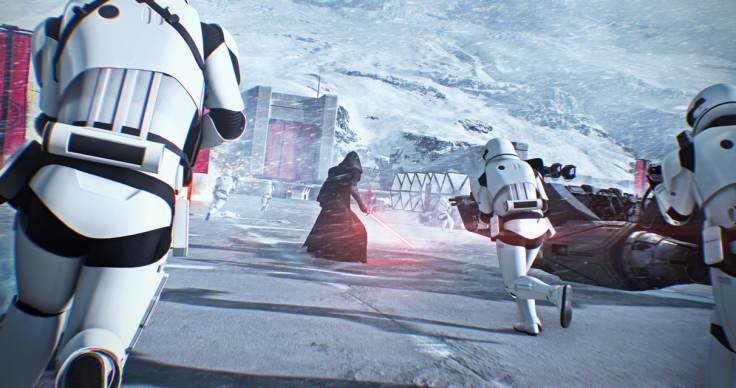Star Wars Battlefront 2 loot box farrago 'a great learning experience' for EA
"It's been a great learning experience for us; we consider ourselves a learning organisation," Jorgensen says.

Electronic Arts boss Blake Jorgensen has once again responded to the controversy over Star Wars Battlefront 2's implementation of loot boxes and microtransactions. Speaking at the 37th Nasdaq Investor Conference, he described the furore as "a great learning experience".
EA and developer EA DICE were forced to remove microtransactions from the game and revalue in-game items in response to the intense fan-backlash that followed an early-access version of the game, and then its full release on PS4, Xbox One and PC.
"It's been a great learning experience for us; we consider ourselves a learning organisation," Jorgensen said.
"If we're not learning, that means we're failing in some way and we're constantly trying to watch what people do and how they play and listen to them to decide what's the best way to build great games."
In late November, Jorgensen spoke at the Credit Suisse Annual Technology, Media & Telecom Conference about why the game favoured loot boxes that included game-altering items that offer plays advantages in play, over purely cosmetic items such as costumes and weapon skins.
He said EA decided against cosmetics to preserve the Star Wars canon. "Darth Vader in white probably doesn't make sense, versus in black. Not to mention you probably don't want Darth Vader in pink. No offence to pink but I don't think that's right in the canon."
It was later revealed by a PC user who datamined the PC version of Battlefront 2, that the game did at one stage include character customisation. Hidden deep in the code were a number of options for armour sets designed for the game's base-level troops.
Sadly, no pink Darth Vader was found.
Since launch, DICE has tweaked Battlefront 2 slightly and will continue to do so. The most recent update - released in early December - increased the amount of credits players are rewarded with after each online game and in the split-screen, co-op Arcade mode.
Credits are one of the game's form of currency, the kind that can't be bought with real-world cash. The currency that can be is called crystals. Either currency can be used to buy loot boxes that contain weapons, emotes and 'Star Cards' that grant or alter abilities.
The microtransaction controversy also ties into the game's progression system, which is laborious to say the least and appeared, prior to microtransactions being switched off, specifically designed to encourage players to spend real-world money.
These problems were unavoidable, but underneath it all was a game we still had a fairly good time with. You can read our review here.






















